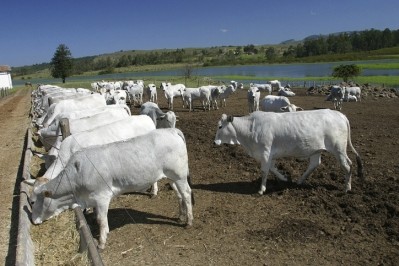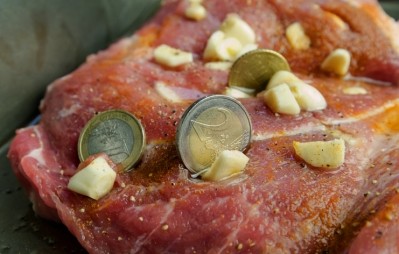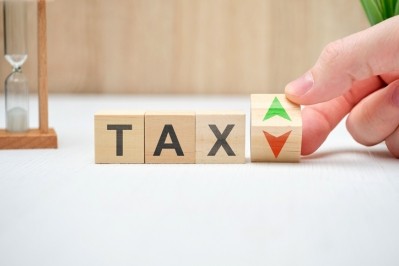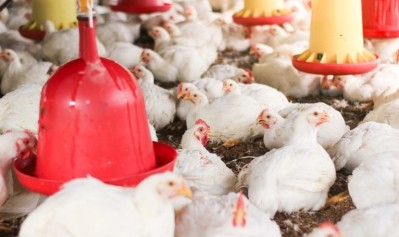EU lawmakers discuss sustainability charge on meat
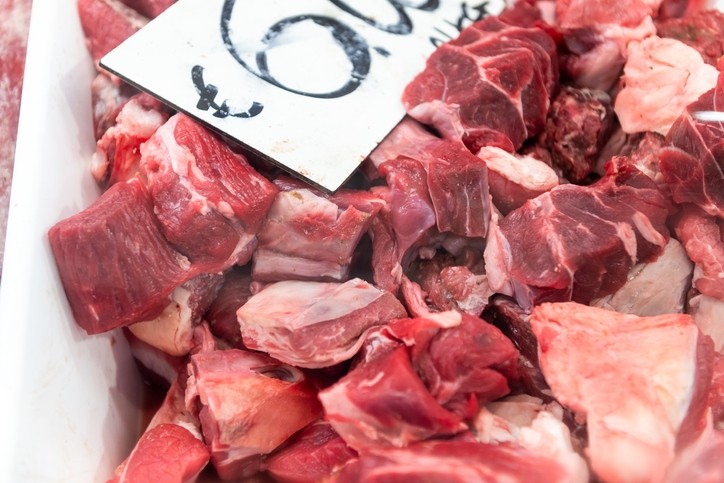
The paper, written by CE Delft and commissioned by the Dutch advocacy group, The True Animal Protein Price Coalition (TAPP), argues that in order to reduce CO2 emissions in Europe, a levy on meat is required to lower consumption across the continent.
Members of the European Parliament were discussing the TAPP meat sustainability charge proposal in a meeting today [February 5] hosted by the Greens and the Social Democrats.
The TAPP coalition reckons a tax on beef, pork and chicken could generate a decrease in meat consumption of 70% in the EU within a decade. Under the plan, the meat tax would apply in the EU from 2022.
"The plan is to increase the price of meat across the EU to reflect its environmental costs, including CO2 emissions and biodiversity loss," says the paper.
Citing a University of Oxford study, the TAPP report argues that emissions pricing on food could avert more pollution than is generated by the aviation industry, as well as save half a million lives and 1bn tons of GHG emissions a year.
“The analysis suggests beef would have to be 40% more expensive to pay for the climate damage caused by its production. Milk and other meats would need to increase in price by up to 20%.”
A meat tax always makes the headlines unfortunately. But its a crude fiscal instrument with trade offs (like move into intensive pork and poultry), and not one we put forward in @Eating_Better by half Roadmap. Not withstanding we do need to pay the true costs of food. https://t.co/ACNyjWPrZP
— simon billing (@sibilling) February 4, 2020
Sustainable agriculture
TAPP said a key aspect of the coalition’s proposal is that revenues from the ‘fair meat price’ – the sustainability charge - estimated at €32.2bn per year across 28 EU Member States by 2030, could be used partly to help farmers to invest in more sustainable agricultural practices.
“It could also be used to lower VAT and consumer subsidies on vegetables and fruits, provide financial support for low-income households, and support developing countries to adapt to climate change and protect forests.”
The advocates the Dutch Cabinet will also present a proposal for “fair meat prices" to the Dutch parliament in the coming months.
Farmer reaction
A tax on meat products would put unbearable burdens on the EU livestock family farming model, without bringing any concrete climate, environmental and consumer benefits, argues EU farmer representatives, Copa-Cogeca.
"Introducing a tax on meat only in Europe would have a simple and direct effect, the relocation of our production to third countries that do not meet our animal welfare and environmental standards. We doubt that a meat tax could lower livestock footprint in this context. The way forward is to encourage further EU livestock farmers, that have managed to decouple farm production and their environmental footprint over the past 20 years.
"On health, the arguments in favor of a meat tax do not hold up either. If we turn the consumer towards always more processed food, what will public health gain from this? If we prevent part of the population from having access to a balanced diet that includes meat, what will public health gain from this?
"Imposing such a tax would be terribly regressive in practice; it will affect the purchasing power of the less fortunate and put the future of European rural life at risk," a Copa-Cogeca spokesperson told us.
Strange that the solution to every modern “problem” is always “more tax”.
— WFC (@wheatfrom) February 4, 2020
EU urged to adopt meat tax to tackle climate emergency | Meat industry | The Guardian https://t.co/AN6P2nyRG7
